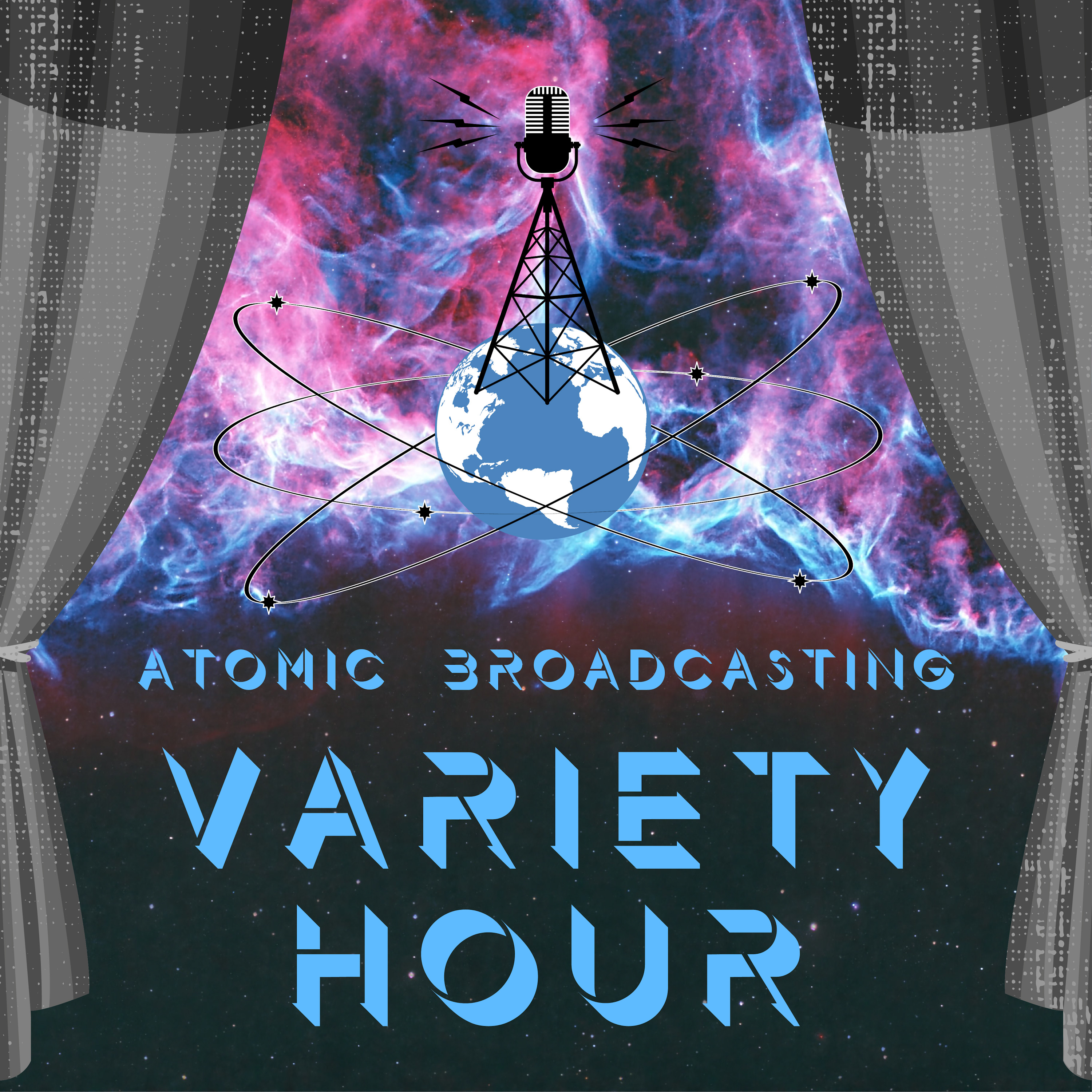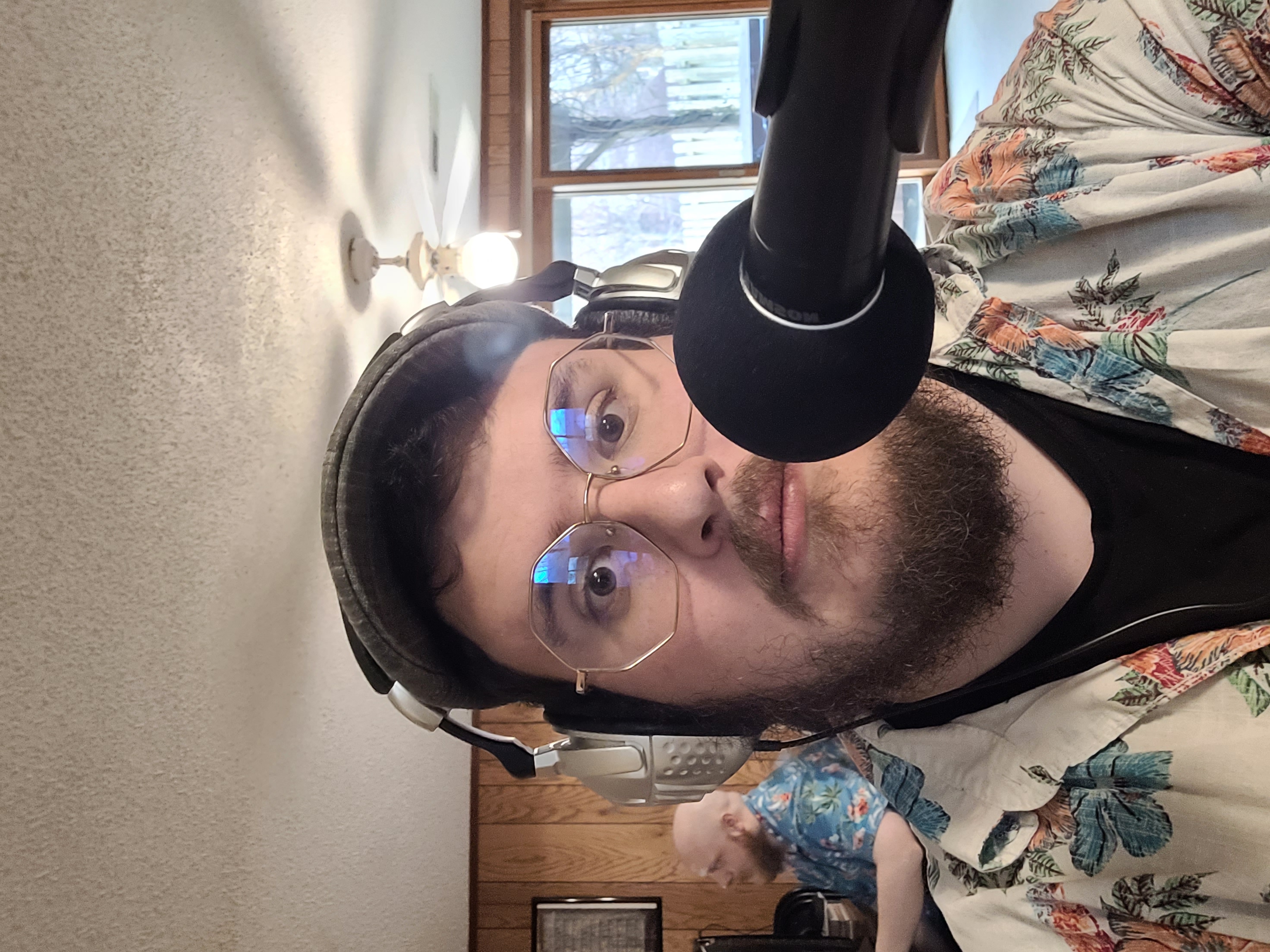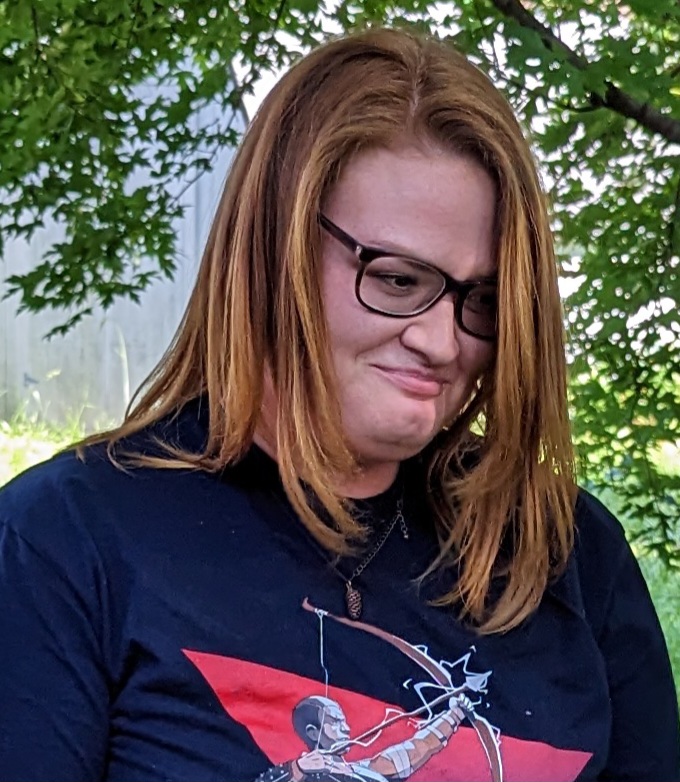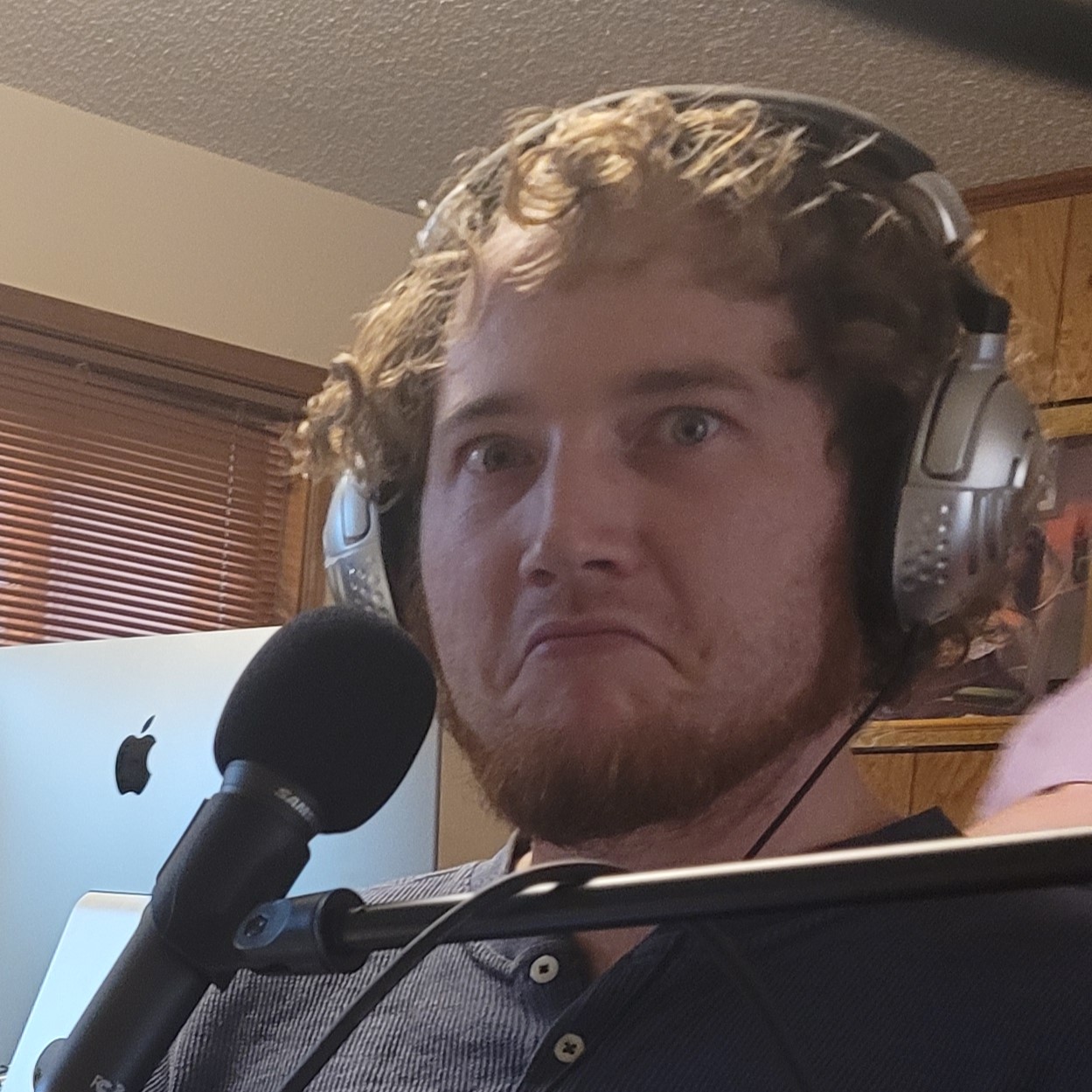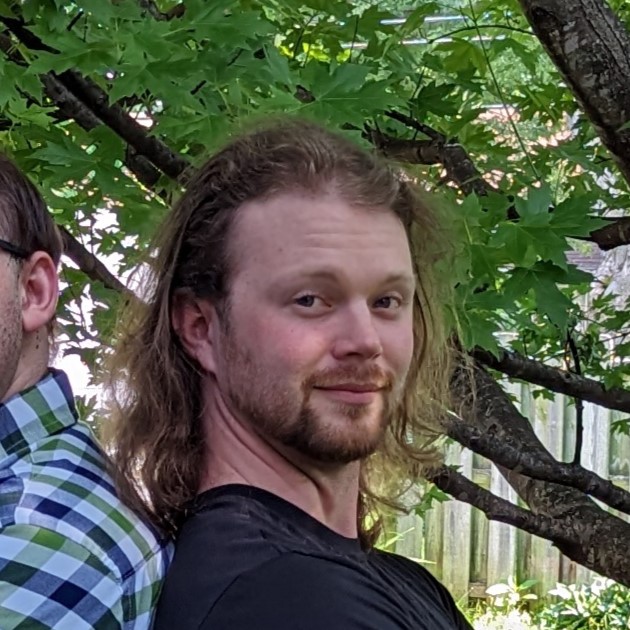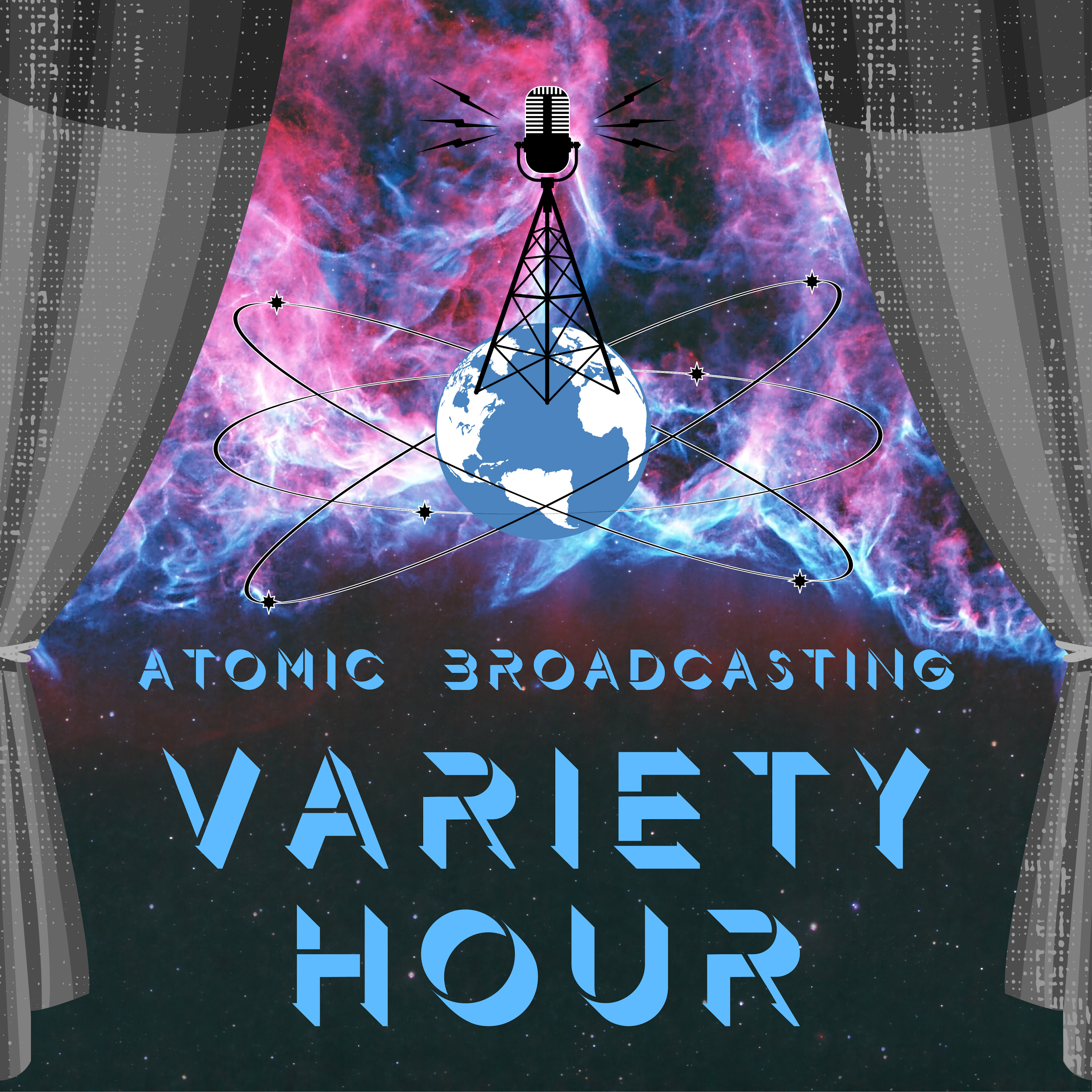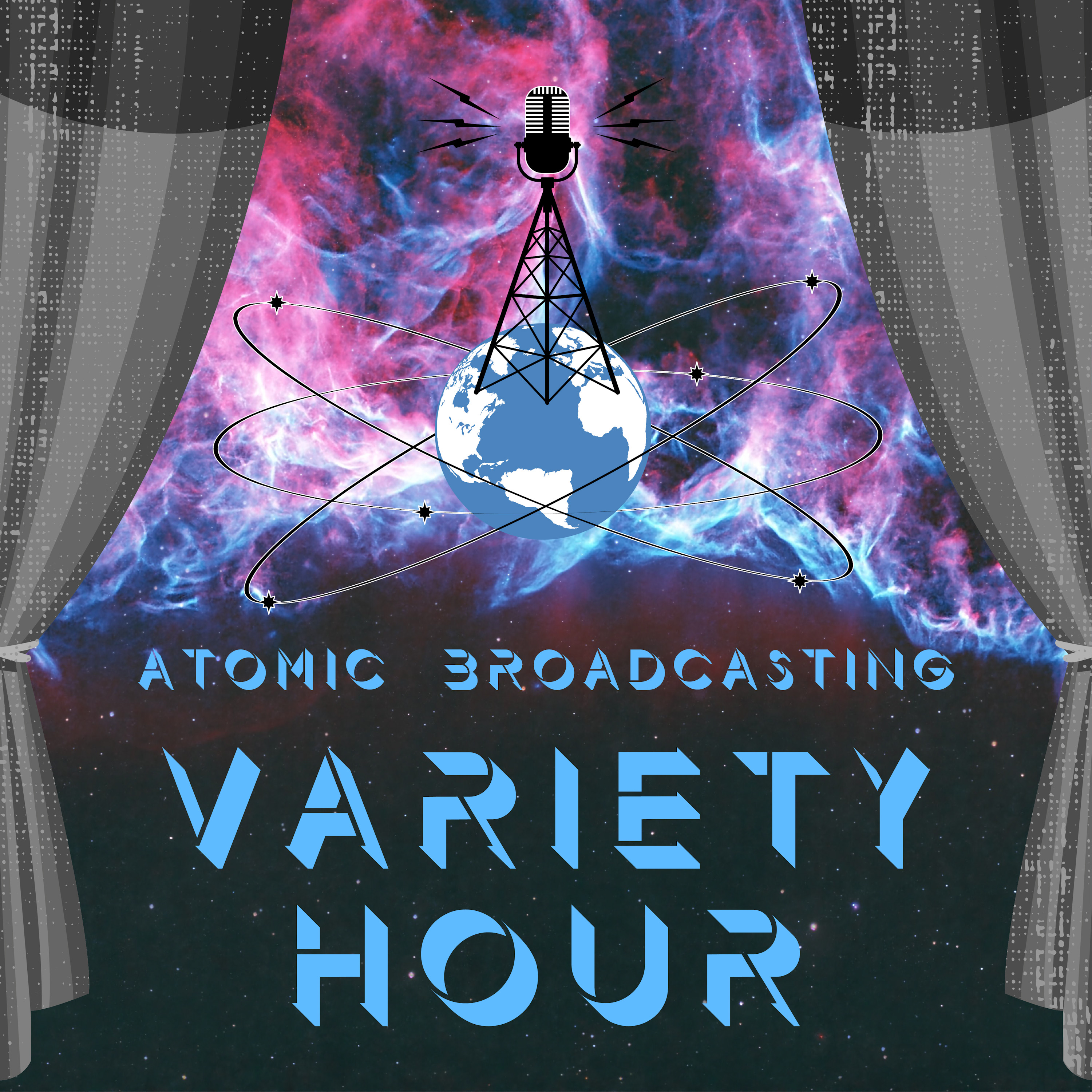[00:00:05] Speaker A: You are listening to an atomic broadcasting production. So sit back, relax and enjoy the feature presentation. And remember, do your part, such as like comment rate and don't forget to tell a friend to tune in for an atomic time.
Hello everyone. My name is Stephen Harrell, but you can call me Harold. I am a friend of the show and I'm here with Sam to discuss Starfinder second edition. Hi, Sam.
[00:00:42] Speaker B: Hello. How you doing?
[00:00:43] Speaker A: I am doing great. How are you?
[00:00:45] Speaker B: Pretty excited.
[00:00:46] Speaker A: Great. Well, can you tell us a little bit about Starfinder second edition?
[00:00:51] Speaker B: Yeah, so, Starfinder second edition, the name might sound familiar to you, Starfinder. We usually play Pathfinder on written and the lost. So it's made by the same people, Paizo and Starfinder is their science fantasy branch of the system.
There was a first edition, we actually got started as a group playing. Well, we got started after college playing Starfinder first edition, which was a lot of fun, but we didn't really mess with the mechanics a lot, so we kind of stopped playing it. And Passfinder second edition came out. So we started playing that because the systems are much more what we were looking for.
And the Starfinder second edition is their new version that's going to be completely compatible with Pathfinder second edition. So the rules are pretty much the same, just with new things for the settings. Since it's in space, there's a lot of new rules related to that and a lot of new classes and ancestries that we're going to be testing out.
[00:01:53] Speaker A: Excellent. So this is a playtest?
[00:01:56] Speaker B: Yeah. So Paizo is really big on getting feedback from their player base. So you'll often see if they have new classes, they'll put out play tests so people can test out the new classes. In this case, this is going to be a whole system as a play test. They did that for Pathfinder second edition as well. It was a very different game before it became what it was. And this is going to be a lot of the same now. The base is already there, so they've given us and it's free on their
[email protected]. there is a oh boy. 250 page rule book that's for free as a PDF that anyone can just go out and download. It's got all the new rules. You do need to have some of the Pathfinder rules already or you go to like archives of Nethus and you can just play. And so what we did is we've taken this system, this science fantasy setting, and we created a fifth level adventure to run. So we are going to test out the game at fifth level, essentially.
[00:02:57] Speaker A: Excellent. Excellent. That seems like a lot. A whole new system to test. How are we approaching that test?
[00:03:06] Speaker B: So we decided to kind of go the route of we are going to have two GM's and two groups of players.
We're gonna have. It's gonna be a six episode show, so it'll be three episodes each group. I'll be running one of the groups. Jordi will be running the other group. The idea came because Starfighter has space combat and ground and general regular ground combat, and we thought to get a full experience, we should test both of them. So we wanted two different groups. They didn't include starship combat in the playtest right away. They're wanting to test out the cores of the game before moving on to that, because Starship combat was a point of contention in first edition. It was a very different game than the rest of the game, and you either hated it or you liked it. I don't know many people who loved it. I'm sure that they're. I'm sure you're out there. I'm sure you're out there. But they probably want to do a lot of work to it this time around. So they're not giving it to us yet, but we're still keeping that concept of. And we're going to be alternating between two groups. So there are six classes in the playtest. So we split it up with three players and three players plus me and Jordy. So when I'm running it, Jordy's going to be a player in my group, and when Jordy's running it, I'm also going to be a player in his group, so that we're also both experiencing both sides.
[00:04:25] Speaker A: That's great. That gives you insight as both the GM and a player, so you kind of know what works and what doesn't.
[00:04:31] Speaker B: Yeah. And we're even because of the amount of players we have. Like I said, there's six classes, but there's eight players. We'll also get some overlap to see how different people approach the same class. So, for example, the space group that I run, the players in that one are going to be Nolan, Olivia Jordi, and Michael Petit. And we're going to have a soldier, a Salarian, a witchwarper, and an operative in that group. Now, the six classes, I know I just said four of them, so I should probably explain what the six are.
Soldier is a base. They changed up the soldier. So in first edition, Starfinder, soldier was very much like a fighter in space. They were good at every, like, weapon and that was kind of their deal. That makes sense. This edition, they are now constitution based. So they use heavy armor, heavy weapons and area fire. That's a new mechanic they're playing with is being able to take an automatic gun, target multiple enemies and make them make, like, saves as opposed to trying to attack them. Geordi's taking it upon himself to try out how much support they gave to melee. That's his direction for soldier. We have a Salarian. Salarians are sort of, a lot of people call them space Jedi, essentially Starfinder Jedi. They are all about the balance between the photon, the graviton, Dione autotomy. Thank you. Of stars. So they, like, gain all their energy from stars. They can create energy weapons. They can fire energy blasts. They run really fast. They're kind of monks in their own way. Very cool. Olivia will be playing that class and going fully graviton, which for those who are interested in first edition, we as a group all decided graviton sucked.
So she was especially excited, not just because she didn't like it in first edition, but because all the stuff that it offered her really made her excited about the class. So I'm, I personally so excited to see how the graviton comes out because it looks really fun. In this edition, the operative Nolan will be playing that those in first edition, they became both the skill monkey. So they're good at all the skills of and they're also good at all the damage. They were kind of just good at everything. So in second edition, they have tuned them a little better. They're not quite as skill monkey now. They're more damage focused. They're very single target damage focused with abilities like aim or letting them do extra damage to a specific target. They're very stealthy. Nolan will be playing a sniper, going around using stealth to his greatest advantage. I am comparing a lot to first edition. This is a playtest for the new edition. This is what we're here to do. Right. In part is also to compare to contrast other classes. Witch warper. Now, this very interesting to us. If you remember, Stephen. Stephen was in our first edition.
[00:07:29] Speaker A: Yes, it was.
[00:07:30] Speaker B: Jenkins came, had to leave and rejoin the campaign. He came back with a witch warper.
[00:07:36] Speaker A: Correct.
[00:07:37] Speaker B: I remember historically, he did not like the class in first edition. He tried his best, but it never did what he wanted it to do. So he has taken it upon himself to play as witch Warper. He's not in this group, but Petite and Jenkins, both the Michaels, will be playing witch Warpers. To see how they play out. This time, they're taking different directions about it. They are a casting class, and they are all about mostly reality warping, and there's different approaches to that, whether it be knowledge from the multiverse or ability to impose your own reality upon real life. They're very cool flavor, and we're really excited to see how they've been tuned for second edition.
[00:08:21] Speaker A: Awesome. And what are the remaining two classes?
[00:08:25] Speaker B: Well, there is the mystic. Stephen, I'm familiar.
[00:08:29] Speaker A: Yes.
[00:08:29] Speaker B: You're playing a mystic in this one. Do you want to talk a little bit about the mystic?
[00:08:33] Speaker A: Sure. So the mystic is also a spellcasting class, like the witch Warper, but their powers are based around forming connections to, like, powerful base elements of the universe. I played a mystic in our Starfinder first edition campaign, and I was always frustrated that as a casting class, that I was really limited in what spells I could choose and what spells I could cast. I'm really looking forward to see how the second edition mystic plays out. Based on what I've looked at so far, it looks like it's going to remedy a lot of my complaints about the mystic. The mystic is also, and it was this way in first edition, is a very good healer class, so that's probably going to be my role for the most part in our group. Yeah. They can be occult or divine casters, I believe. I believe those are the options for them.
[00:09:31] Speaker B: So I think they can be primal as well.
[00:09:34] Speaker A: Oh, they're gonna be primal as well. Okay. I didn't remember. My character is going to be an occult caster.
[00:09:39] Speaker B: So one thing I like about it with those traditions is their feats basically allow them to fill the role, depending on the feats you pick, of a druid or of a bard.
[00:09:49] Speaker A: Right? Yes, correct.
[00:09:50] Speaker B: So they kind of get cleric stuff right away, but you could take those domains as well. So what you're familiar with is Pathfinder. You can almost be those different glasses with the mystic and always still have that healing extra, right?
[00:10:03] Speaker A: Yes, correct. And they have a. I mean, they have a feature that is very functionally different, but reminds me a lot of the cleric's divine font that gives them extra healing on top of the spells that they can cast.
[00:10:15] Speaker B: And we'll see that in play in the first episode. Actually, no, second episode. Because you are on the ground team. In the space team.
[00:10:23] Speaker C: Correct.
[00:10:24] Speaker B: So then there's the last class, which is the envoy. I'm actually playing an envelope, which is interesting, because first edition, I had no interest in the envelope whatsoever. They were just sort of a kind of bard, but not.
I didn't really get their identity very well. Aside from just attempting to be the face of the party, the second edition, they have remedied that they are indeed still the face, but they are more of the leader. They have a lot of abilities that buff all of your allies. They can make your allies move out of turn. You can get bonuses to damage for your whole team or debuffs on enemies. And a lot of their abilities now have the added effect where if the envoy gives the group an order and then he acts on it first, it procs a lead from the front ability, which makes all the buffs stronger because you as the envoy have spent your time to give the initiative to the group, essentially. Really cool. I was trying to figure out something that had a class that would give me a middle ground of just being a standard kind of soldier kind of character, because for me personally, soldiers being all heavy armor focused means I'm not interested in playing them. But operatives are all light armor and very light weaponry. So then I was left with, well, where's the middle ground envoy? Kind of fills that vibe, plus giving you the leader tactical abilities.
So that's what I will be playing in the ground group now. So the ground group will be me and Harold Jordy will be running it, and then our additional player will be Michael Jenkins and Jack, who you might know from season one of records of the unknown. And I'll be playing an envoy. Harold will be playing the mystic, Michael Jenkins will be playing a witch warper, and Jack, he'll be playing with the soldiers offering, which is heavy armor and lots of explosives and lots of area damage. I'm really excited to see how that group really plays out. They're both very different groups, and they seem like they're going to be set for very different things.
Now, on top of classes, they also are offering a lot of new ancestry, of course. Yes. I'm really excited, personally, about all these ancestries because they just offer such different things, and I'm very curious to see how they'll come out. There's a lot going on with those, and you'll see our ancestories as we come into play.
[00:12:47] Speaker A: Sure, absolutely. So going back to this being a playtest, is there any way for our listeners or our audience to participate or give feedback of their own?
[00:12:58] Speaker B: Yeah. So what we're doing, since we're doing the playtest, the PDF I said was free on their website, also alongside the PDF, there is a survey. So after you've played the game, a little bit. There is a survey you can fill out. Now, the survey closes at the end of 2024. So December 31, 2024, I think is when it closes. So you have all that time to play this game. Do like a couple, one shots with some friends, and then you can give as much feedback as you want. There is a lot of feedback. You can give us a whole system's worth of feedback. Now, also in the, in the PDF I mentioned, they actually do tell you, like classes, what their focus is on the playtest. So you can play it what they're asking you to help maybe focus a little more on. But then you can also take it upon yourself, like Geordi with the soldier to test out how it's working so far with what they're, they kind of just gave the option for but didn't put a lot of focus into, like them soldiers melee build what we're doing here, since we're doing the three episodes of each team, so it'll be six episodes with this. At the end of that six episodes, we actually will be getting together and then releasing an episode where we just are going to give all of our feedback. We're going to try and get all eight of us together. I can't guarantee that all eight of us will be there. I hope that we will. We're going to give you all, we're going to just talk through essentially what our survey responses are going to be. Just, here's what we noticed, here's what we liked, here's what we'd like to see improved that opens the conversation up. I'm going to try and hold my survey responses until the end of the year, closer to it, because if you're, if you are interested in giving your feedback and you listen to our episodes, you know, because we want to be an example there, you can listen to what we did and maybe we didn't do something right or you think, well, they did this rule, but what does this rule really mean? Give us some feedback if we did a rule wrong, maybe, or play off of what we did while you're testing yourself. And I'd love to have a conversation with some people who are interested about this, whether that be on our social media or on our discord, because I don't. I'd love to get some more feedback from people or conversation from people going before I put my survey in, because oftentimes you feel something in the moment and then that's gonna be your response. But if someone might tell you like, hey, you did this thing, but it's this thing for this reason? Maybe that could help. Maybe give you that sense of. Yeah, okay. I can see why they do that ruling as opposed to something different. So seriously, if you have the opportunity, this is one of my favorite settings. The setting is amazing. It's so much fun. We're going to be exploring the whole setting here in the game.
I don't want to go into the setting too much. Here it is, Paizo's setting. So I don't feel like I need to really explain it very well. There's probably some information in the PDF. I can't remember how much is in there about the setting. There's plenty online from first edition, so if you're interested, look into it. It's kind of a sequel series to Pathfinder, but not. There's a lot of interesting mysteries going on in the world, but what you'll see in the playtest, specifically, I'll explain so that people aren't too confused. So the main solar system where golarion, the Pathfinder planet, would be, is called. Nowadays, it's called the pact world system. And there's the general planets that you'd expect in our reality. In real life, our solar system is nine planets. They say that questioningly. I don't remember.
[00:16:24] Speaker A: Pluto's a planet.
[00:16:25] Speaker B: Pluto's always a planet in my book. And then another thing we'll be doing, we won't be playing in the packed world system. I know, I set the whole thing up. We're not even gonna be playing in there. We're gonna be playing in the Vescarium. What is the vascarium? It's a military war mongering solar system with a blue sun. Isn't that fun?
The vesk are a warlike lizard race.
They have subjugated every planet in their solar system, giving them the wonderful names like Vesk one and Vesk two and Vesk three, based on their designation of how far away they are from their homeworld of Vesk prime. One of these planets, Veskin six. Since they've taken over the native races, like the Patra, that are feline like persons, they have been raging a guerrilla war against them, trying to earn their freedom. Now, recently in Starfinder second edition lore, the Vesk have seeded the planet. They've given the planet back to the people who call this planet Polanis.
Now, what we're going to be playing is there is a vasque general who decided not to cede the planet. He is not giving up on that planet and he is going to try to remain like a brutal tyrant of the planet and not give it up. The groups will consist of members from that freedom force, members from the Vescarium, and members from the pact worlds, and an alliance to take out this general and give the planet its true freedom as a united affront. And that's what we'll be playing. So I wanted to give that context so you guys didn't go into this. What is going on? Where are we? Hopefully that makes sense. If it doesn't, check out the system lore. Seriously, I love this stuff. It's really good and I'm really excited to see how the playtest comes out and get to talk about it afterwards. I feel like a lot of us here at atomic broadcasting really love getting into mechanics and talking about how rules work and we don't do that a lot on our shows. We try to do it to explain stuff, but this I'm hoping for the survey. We can get really into it and really discuss it and I hope you all listening will really glean a lot from that. If you're interested in the playtest, this is a great place to do that. If you're not interested in the playtest, let me put that out there. If you're not interested in the playtest, this is still going to be a really fun adventure you can listen to. There might just be a little more mechanical talk than normal, but we are still making this a fun time and a fun group of episodes to listen to. So don't think that you're just going to need to skip these. If you're not interested at all, just maybe don't listen to the afterward unless you just want to hear us chilling and talking.
[00:18:56] Speaker A: Well, sounds very exciting. I cannot wait to get these episodes out. Is there any final words you'd like our audience to hear before we get into this?
[00:19:06] Speaker B: This is our first time that we've ever done two GM's. I wrote the whole story more or less, and Jordy filled in a lot of pieces on his end. So I'm actually personally really excited to see see how that comes out. Games like this, I love writing and telling stories in. Whilst I love these crunchy mechanics of Pathfinder and Starfinder, I don't really like running them. So I had fun running the Starfinder system personally. This is also like a test to see how it would work for two GM's to kind of do things together. So let us know how that works too. If you like the flow of two GM's or if you find it confusing, I do actually really want to know that because it's good for potential future things like this. We could do this in with future shows as well. So if you have thoughts about that as well as a reminder, we would love feedback from more than just a survey, but also for the show we're doing different things here. I want to hear how it works, how it lands, what didn't land, what you liked, what you didn't like. I want to hear it. And then I guess lastly would be please make sure to like share rate, whatever you need to do with the program you have. We could really use that support and that help and that would be quite wonderful from all of you and I look forward to seeing you guys out there and hearing your guys feedback. I'm really excited.
[00:20:23] Speaker A: As am I. Let's get into it.
[00:20:31] Speaker C: This has been an atomic broadcasting production. Starfinder, the pact worlds, and the world setting are all copyright of Paizo. For more information visit paizo.com. while you're there, check out the star Finder playtest. The PDF is free and there's a survey to give you feedback. The music used is from Monument studios collection as well as other assorted artists. If you enjoyed the show, feel free to check out our other productions on the variety hour feed or our main show, the written and the lost, a weekly Pathfinder second edition show. All this and more can be found in the episode description Description don't forget to like, comment and share with a friend and most importantly, have an atomic time.
